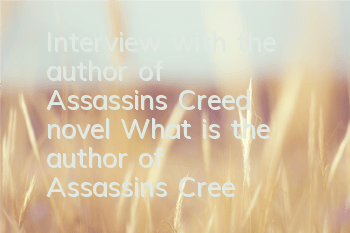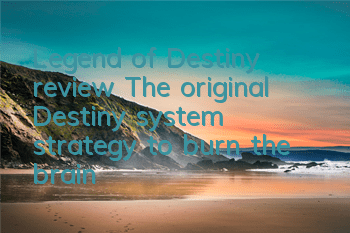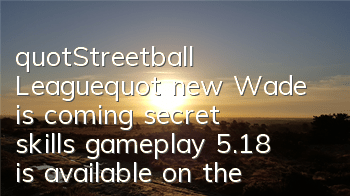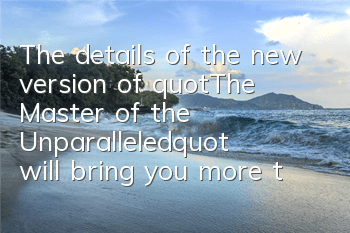The first volume of the novel "The Last Genesis" which adopts the worldview of Assassin's Creed "Assassin's Creed" invites readers to explore two corresponding main lines: the first story is about modern society teenagers Owen and Javier, who gather a group of teenagers and use the stolen Animus to return to the past; the second story is about interlacing the story of the ancestors of these children's ancestors in the New York conscription riot in 1863. The novel was written by the award-winning writer and a fan of Assassin’s Creed Matthew J. Kirby, a former psychology scholar, whose representative works include The Clockwork Three, A Taste for Monsters and Icefall.
The simplified Chinese version of the novel "Assassin's Creed·The Last Age" series has been published by Relay Publishing House, and the three volumes are "The Last Age", "The Tomb of Khan" and "The Destiny of the Gods". UbiBlog interviews author Kirby to learn how he created the book and perfectly incorporates history into the plot.
The "Assassin's Creed·The Last Genesis" series of novels, published by Relay Publishing House
What is the starting point for the historical background setting of the creation of "The Last Genesis"? Where did the original inspiration come from?
Matthew J. Kirby: When I was going to write this series of novels, I always wanted to set the story of Assassin’s Creed in London. The era was in the Victorian era because I wanted to add steam punk elements to the novel, hoping to have steam punk-style sleeve swords. Just like the Assassin’s Handguard, I was a fan of this type of accessories, but then I thought, "Wait, this may be the theme of the next game of Ubisoft. At that time, Ubisoft had not disclosed Assassin’s Creed Syndicate, but I was very sure that my prediction was that the background of the next game would be in Victorian London", so I began to think again, "Will it be cool to narrate the same era from a synchronous perspective, like letting the story take place at the other end of the Atlantic Ocean?"
When I looked at that history, I was completely immersed in the possibility of stories from the same era. The development team chose London, where there were street gangs and the potential for riots, and these high-risk factors led to conflicts in playing outside. In terms of the New York gang era, I was a loyal fan of that history, and the recruitment riots were also one of the major events in American history. When I let my thoughts cross the ocean and gave up my original thoughts, it took only a little time to decide that the story would begin in New York City in 1863.
What process has gone through to create the original characters of "The Last Genesis" and connect them with the game characters?
MJK: From the beginning I had the opportunity to hint, mention the plot of relevant characters or leave easter eggs in the novel for game fans. I love the character Shay Cormac so much, and I think the thief is awesome. It is quite easy to divide the assassin and the Templar into two camps: good and evil. Assassin is a good person and the Templar is a bad person, but the reason why I was attracted to Assassin’s Creed to be the author of the novel is that the boundary between justice and evil is actually not that clear. Both organizations pursue the same goal, but they choose different means, and I think both organizations are prone to abuse their power or making mistakes.
I am very fascinated by Assassin’s CreedRogue, because the game is mixed with the Templar's perspectives, I hope to put these concepts into the novel, and I hope there is a sympathetic Templar character in the story. It was a very cool setting for me to create Cudgel Cormac, to make him a descendant of Shay Cormac, to have him with certain family backgrounds. After comparison, I created Varius, who comes from the assassin camp with a long history and shoulders great responsibilities. These two roles are very similar because they both bear traditions that cannot be violated, so the conflicts between them also represent conflicts and contradictions that are difficult to overcome between these two major organizations.
The steam punk wind sword mentioned above is very interesting, but the book talks about Varius' preference for traditional assassin clothing. Is there any reason for the difference?
MJK: Because I don't want to use the Assassin's Creed Syndicate setting, I love the assassin's Creed Syndicate very much, but I don't want the novel setting to extend this. When describing Varius, I don't think he would like to use these accessories, which is not like his preference, but more like my personal preference. I hope character accessories can be true to personality, the way of completing tasks and personal goals.
What challenges did you encounter when writing a double main story and interlaced plot?
MJK: Because it is the first volume of the series, there will be a large number of characters, but they do not want to slow down the narrative rhythm. They have to maintain the plot progress and compact stimulation, which makes readers unable to let go of the volume. Readers who enter the Assassin’s Creed world will pursue a magnificent and epic world, but the real challenge to achieve this is to introduce the characters in the modern society storyline one by one before the characters return to the past, and I don’t have enough space to do so. I hope to satisfy readers' expectations as soon as possible. It also gives readers enough awareness of modern characters who have returned to the past.
Another challenge is to give readers accessExperience the past history and understanding the memories of ancestors are related to modern life. This is also what Ubisoft hopes to achieve. Animus is not a real time travel, we cannot change the past, so what exactly can this machine provide? In this case, the history you experience can only let you know how the past history affects the present future, so the two story lines must be directly connected, which will have a significant impact on the characters and the story, and will also have an impact on the experience of the past and present life, which makes the novel more complex and interesting, and this part of the content will be placed in the second volume of the novel.
What are the methods you have to study novel setting? What are the findings during the research process?
MJK: I have a rough understanding of the background of the times, but I don’t know much more about the United States at that time than in Victorian London. Setting the story in New York City represents me having to do more research, and in fact I love research very much. During the research process, I tend to look for original materials first, while articles such as magazines and news columns were written by people at that time, which can represent what they saw and heard at that time. Although we can understand history from the abstracts of modern historians, some complex history is like conscription riots. Historians usually interpret it with a specific position when reviewing, and the characters of novels are to experience what the people experienced at that time. So I think the most important thing is how the people viewed these things at that time, rather than how modern people interpreted history.
I can write these plots because modern characters look back on history. What immersed me most about Assassin’s Creed is that I can reinterpret history because I operate modern characters to experience certain history through my own feelings and understand historical events with very different perspectives of contemporary characters. I think the contrast between them is very interesting.
Are there any discoveries that surprised you during the research process?
MJK: The Aztec club fascinated me, I was completely addicted to it, because my novel (with Javier) started with the demise of Aztec, and the city of Tenochtitlan, the capital of Aztec, and Cortez who destroyed the Aztec civilization, were involved, but then I found out that the novel had to be obtained in Piece of Eden in New York, and I had no idea how to write these plots and put me in a dead end. When I studied the history of the city of Mexico and the destruction of the Aztec Empire, as well as the subsequent American-Mexico War... Oh my God, there was a club in this history with different purposes and functions, and the history was not recorded, which surprised me very much, and it also made me lucky to maintain the rationality of the plot of the novel.
In fact, each character in each book has his own historical background setting, and I also found that history will give answers. I got it from itMany surprises, when you look back on it, some things should be like that, and some plots seem to be deliberately created, but in fact they are not. Most of the time, history is amazing records, including different characters, organizations and events, which is why I like history.
What are the ideas of things in the game that make you particularly want to continue in the novel?
MJK: Certain aesthetic views, parkour, free running, action and strong narrative tension, all of the above are very important, but the reason that attracted me to become the author of the novel is that some games can touch, and can explore and express in different ways in the novel.
Another thing I want to keep is that I just mentioned that two organizations in the game cannot directly distinguish between good and evil, and their methods are very different when performing the same task. But the conflicts they have caused by inner beliefs, such as the gap between free will and following commands, fascinated me. Simply put, "I am the hero of free will", but if a free willer hurts the person you love, you may suddenly not want that person to have freedom. This is not a very easy-to-arrange issue, and I think it is the root cause of the millennium conflict between the Assassin and the Templars.
Another person who wants to keep the content is related to Desmond Miles. This idea is that your DNA has the past and history, but what does this history mean to you? What will affect you and what kind of person you become? What choice will you make? I am very interested in the answer - this may be related to the fact that I was a psychologist. I once tutored a child from a terrible family who were deeply influenced by the past, such as "I want to make different choices, and have different behaviors from other family members in the past, and I don't want to be the next one." The challenges and feelings encountered during this process are also very important and must be retained in the novel.
This is why every character in the novel is asked to choose between the two camps of Assassin and Templar. Some characters may come from the Assassin or Templar camp, and what does it mean for them to choose a camp? Can they make their own choices, or will they be limited to their original camp? These are two more difficult questions to answer. Sometimes the most complex questions are also the most suitable topics for a book to discuss. Only through novels can you explore the answers to the questions.









